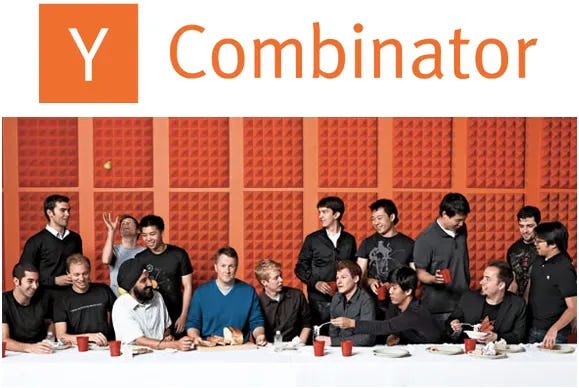What YC’s New Startup Wishlist Says About the Future of AI
YC’s latest Requests for Startups outline six frontiers where AI is creating billion-dollar openings — and why timing has never been better to start.
Every 3 months, Y Combinator releases a list of ideas it wants founders to build. They call it the Requests for Startups.
It’s not a roadmap, but it’s one of the best signals for what’s next. Each theme reflects what YC partners believe is ready for real businesses — not experiments.
This fall’s RFS is all about building with AI. Not adding it to products, but using it as the base layer for new companies.
“The last few years were about proving what AI can do. Now, it’s about building with it.”
Y Combinator has put together a new list of startup ideas they’re especially excited about— ideas that treat AI not as a feature, but as a foundation. They reflect where theym think some of the biggest opportunities are right now.
Here are the ideas shaping that future:
1. Retraining Workers for the AI Economy
AI isn’t just about chips and models. It also needs people who can build data centers, cooling systems, and fabs.
YC partner Harj Taggar says we’re heading into a shortage of skilled trades. The solution: startups that use AI and VR to train workers for these jobs fast.
Think of a new generation of vocational schools built with multimodal AI tutors and real-world simulation. The companies that solve this won’t just train people — they’ll power the next phase of the AI economy.
2. Video Generation as a Primitive
Video generation models are improving fast. Google’s Veo 3 already makes short photorealistic clips that look real to the human eye.
David Lieb calls this the next computing layer. When the cost of video falls close to zero, new products emerge: personalized media, interactive commerce, even AI-native games.
Startups that treat video as a primitive, not a feature, will define the next creative platforms.
3. The 10-Person, $100B Company
Aaron Epstein argues that AI makes massive teams obsolete. With the right tools, ten exceptional people could build a hundred-billion-dollar company.
The new metric to watch is revenue per employee. High-agency teams that move quickly and automate aggressively will outcompete companies weighed down by meetings and politics.
Speed and focus are the new scale.
4. Infrastructure for Multi-Agent Systems
As AI agents evolve into collaborative systems, new infrastructure challenges appear: coordination, debugging, and reliability.
Pete Koomen sees this as the next platform opportunity. The equivalent of Kubernetes for AI agents will let developers manage entire fleets as easily as we now deploy web apps.
The founders who solve this will power the agent economy.
5. AI-Native Enterprise Software
Andrew Miklas draws a line from the early SaaS revolution to today. Salesforce and ServiceNow rebuilt enterprise software for the cloud. The next generation will rebuild it for AI.
The winners will design tools that help humans make decisions and take action automatically, not just record data. Every major enterprise category is open again.
6. Replacing Government Consulting with LLMs
Gustaf Alstromer highlights one of the world’s largest inefficiencies: the U.S. government spends more than $100 billion a year on consulting.
AI can already automate much of that work. Startups using LLMs for compliance, policy writing, and regulation can cut costs and improve transparency at massive scale.
The biggest untapped AI market may be the public sector.
The Trend Line
This RFS marks a clear shift. YC’s focus is no longer on new AI capabilities but on how to operationalize them.
The next generation of startups will use AI to build new infrastructure, new labor systems, and entirely new business models. The experimental phase is ending. The building phase has begun.
Would love to see your opinion in the comments on this YC Request for startups, and I'm also curious to learn what you are building!


Thank you that's an interesting way of thinking about the future. If VC funds are involved in picking the winners it makes sense that they are also becoming a bit more deliberate with the accelerators. I love to know more about how the accelerators and funds are connected regarding the social network.
AI’s no longer about shiny tools but about infrastructure.
the list shows the shift from “use AI” to “build on AI”.
and the next big wins won’t come from just prompting better, but from turning those prompts into real products and systems.